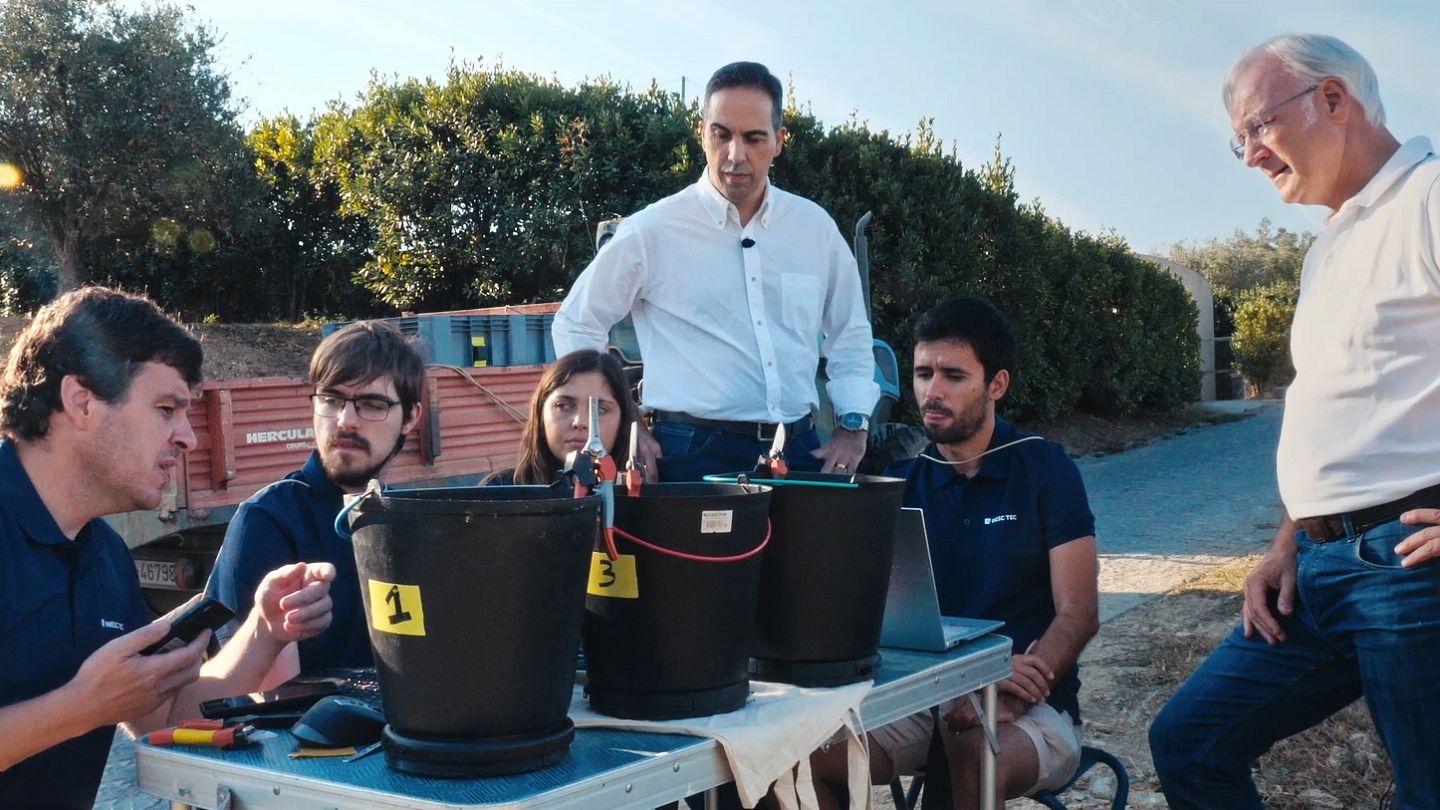
Can you track precisely which grapes went into a specific bottle of wine? The Food Detectives believe it can be done, and they’re testing their tech in the Douro valley in Portugal.
We begin just after dawn on the slopes of the Quinta do Seixo vineyard as the autumn grape harvest continues. It’s here that the Portuguese researchers from the EU’s Watson project are testing technology that aims to connect every step, all the way from a bottle of wine back to particular grapes harvested from an individual vine on a specific day.
“This is pure detective work,” says António Graça, the head of R&D at SoGrape, the owners of these vineyards. “Vineyards are not homogeneous units. There are micro variations in microclimates, in soil, even the plants are individuals. So it is important for us to understand how each grapevine is actually living,” he says.
Today harvests are recorded according to pre-defined blocks, which may include dozens or even hundreds of vines. To drive down to the individual plant level, the Food Detectives have developed robust connected buckets and secateurs which record each snip of the vine, and the weight added to each bucket at each location, using GPS.
“The idea of a detective is to understand what’s happening and draw conclusions,” explains Pedro Carvalho, Senior Researcher at INESC TEC in Porto. Data gathered from plant to plant means the team can increase transparency and have a much higher level of traceability. Pedro is testing blockchain technology to ensure the information is considered reliable and tamper-proof.
Robots to care for the vines
Meanwhile, autonomous robots, another emerging technology, are slowly entering the vineyards. On a nearby slope an articulated tractor-like robot is being tested as a tool to mow the grass, spray the plants, record the weather, and evaluate the state of the grapes.
“We want to see a fully automated vineyard,” robot expert Filipe Neves dos Santos from the University of Porto tells Euronews. “Winegrowers will purchase a service where a set of robots will come to provide a service and have a fully automated vineyard.”
The Food Detectives see such connected and autonomous technology as an opportunity to manage the vines in a bespoke way, ultimately giving the winemakers the chance to better capture the character of each harvest.
“We can work better at generating quality, generating identity from the earth, from the plants, from the places, and then transfer those identity and quality into the product, into the wine that the consumer will enjoy,” António Graça concludes.
Euronews creates The Food Detectives
The Food Detectives series follows the research within the EU’s Watson project, funded by the Horizon Europe programme. Euronews is a member of the Watson project consortium, alongside 46 other EU and non-EU partners from industry and academia. Watson aims to give food safety authorities better tools to detect and prevent food fraud.
Join us for The Food Detectives LIVE EVENT on the Euronews YouTube channel on Thursday 27th November at 17.30 direct from Brussels.